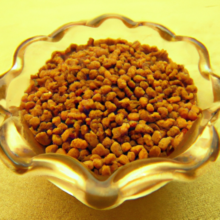The Healing Power Of Echinacea: Boosting Immunity Naturally
In today’s fast-paced and ever-changing world, maintaining a strong immune system is more important than ever. With the rise of various illnesses and diseases, finding natural ways to boost your immunity has become a top priority for many. Look no further than the remarkable healing power of Echinacea. This incredible herb has been used for centuries to enhance immune response and ward off infections. Join us as we explore the numerous benefits of Echinacea and discover how it can effortlessly support your overall health and well-being.
What is Echinacea?
Overview
Echinacea, also known as purple coneflower, is a flowering plant that belongs to the daisy family. It is native to North America and has been widely used for its medicinal properties. Echinacea is known for its ability to boost the immune system and has been used for centuries as a natural remedy for various ailments.
History
The use of echinacea dates back to the Native American tribes, who were the first to discover its healing properties. They used it to treat a wide range of conditions, including wounds, infections, and snakebites. European settlers soon adopted the use of echinacea and it gained popularity as a remedy for colds and flu. Today, echinacea continues to be a popular herbal remedy and is widely available in various forms, including supplements, teas, and tinctures.
Varieties
There are several different species of echinacea, but the most commonly used ones for medicinal purposes are Echinacea purpurea, Echinacea angustifolia, and Echinacea pallida. Each species has its own unique properties and is used for different purposes. Echinacea purpurea is the most widely cultivated and studied variety, known for its immune-boosting effects.
How Does Echinacea Work?
Immune System Support
Echinacea is primarily known for its ability to support and strengthen the immune system. It stimulates the production of white blood cells, which are responsible for fighting off infections and maintaining overall immune health. By enhancing the activity of these immune cells, echinacea helps the body defend against various pathogens, such as viruses and bacteria.
Anti-inflammatory Properties
In addition to its immune-boosting effects, echinacea also possesses anti-inflammatory properties. It can help reduce inflammation in the body by inhibiting the activity of certain enzymes and proteins that trigger the inflammatory response. This makes echinacea a valuable herb for managing conditions characterized by chronic inflammation, such as arthritis and allergies.
Antiviral and Antibacterial Effects
Echinacea has been found to exhibit direct antiviral and antibacterial effects. Some studies have shown that it can inhibit the replication of certain viruses, including the common cold and flu viruses. Additionally, echinacea can help prevent bacterial infections by blocking the attachment of bacteria to host cells. These antiviral and antibacterial effects make echinacea a powerful natural remedy for preventing and treating respiratory infections.
Benefits of Echinacea
Strengthening the Immune System
One of the key benefits of echinacea is its ability to strengthen the immune system. By boosting the production of white blood cells and enhancing their activity, echinacea helps the body fight off infections more effectively. This can help reduce the frequency and severity of illnesses, particularly colds and flu.
Preventing and Treating Colds and Flu
Echinacea has long been used as a natural remedy for colds and flu. Research suggests that taking echinacea supplements or drinking echinacea tea at the first signs of illness can help reduce the duration and severity of symptoms. It can also help prevent respiratory infections when taken regularly as a preventive measure.
Reducing Inflammation
Chronic inflammation can contribute to a wide range of health conditions, including autoimmune diseases, heart disease, and certain types of cancer. Echinacea’s anti-inflammatory properties make it a valuable herb for reducing inflammation and supporting overall health. It can help alleviate symptoms associated with inflammatory conditions and promote a healthy inflammatory response.
Fighting Upper Respiratory Infections
Upper respiratory infections, such as sinusitis and bronchitis, are often caused by viruses or bacteria. Echinacea’s antiviral and antibacterial effects make it an effective natural remedy for preventing and treating these infections. It can help reduce the severity and duration of symptoms, as well as support the immune system in fighting off the infection.
Enhancing Wound Healing
Echinacea has been used for centuries to promote wound healing. It can help speed up the healing process by reducing inflammation and promoting the growth of new tissue. Echinacea can be used topically as a salve or cream to treat minor wounds, cuts, burns, and insect bites. It can also be taken internally to support overall healing and recovery.
Choosing and Using Echinacea Products
Finding High-Quality Echinacea Supplements
When choosing echinacea supplements, it is important to look for high-quality products that contain standardized extracts. Standardization ensures that the product contains a consistent amount of active compounds, such as echinacosides and alkamides, which are responsible for its therapeutic effects. Look for reputable brands that adhere to good manufacturing practices and have third-party testing for quality and purity.
Different Forms of Echinacea
Echinacea is available in various forms, including capsules, tablets, extracts, teas, and tinctures. The form you choose depends on your personal preference and the desired effect. Capsules and tablets are convenient for daily use, while extracts and tinctures are more concentrated and can be added to water or other beverages. Echinacea tea is a popular and soothing option for promoting immune health.
Proper Dosage and Administration
The appropriate dosage of echinacea depends on various factors, including age, health status, and the specific product being used. It is important to follow the dosage instructions provided on the product label or consult with a healthcare professional for personalized guidance. Echinacea is generally safe when used as directed, but it is recommended to take periodic breaks to prevent the body from building up a tolerance.
Safety and Potential Side Effects of Echinacea
General Safety
Echinacea is considered safe for most people when used as directed. However, it is always advisable to consult with a healthcare professional before starting any new herbal supplement, especially if you have any underlying health conditions or are taking medications. Pregnant and breastfeeding women should also seek medical advice before using echinacea.
Allergic Reactions
While rare, some people may experience allergic reactions to echinacea, particularly if they have allergies to plants in the daisy family. Symptoms of an allergic reaction may include rash, itching, swelling, and difficulty breathing. If you experience any of these symptoms after using echinacea, discontinue use and seek medical attention.
Interactions with Medications
Echinacea may interact with certain medications, including immunosuppressants, anti-anxiety drugs, and some cancer medications. It is important to inform your healthcare provider about any herbal supplements you are taking to avoid potential interactions. They can advise you on the safety and suitability of using echinacea alongside your current medications.
Echinacea: Debunking Common Myths
Not a Cure-All
Although echinacea has many health benefits, it is important to note that it is not a cure-all. It is a natural remedy that can support the immune system and promote overall health, but it should not replace medical treatment for serious health conditions. It is always recommended to consult with a healthcare professional for a proper diagnosis and treatment plan.
Not Recommended for Everyone
While echinacea is generally safe for most people, there are certain individuals who should avoid or use it with caution. People with autoimmune diseases, such as rheumatoid arthritis or lupus, should exercise caution when using echinacea, as it can stimulate the immune system and potentially worsen symptoms. Additionally, individuals with certain plant allergies or asthma may be more prone to allergic reactions to echinacea.
Resistance and Tolerance
There is a common misconception that using echinacea for extended periods can lead to resistance or tolerance. However, research suggests that this is not the case. Echinacea does not cause the body to become dependent on it, nor does it lead to a decrease in effectiveness over time. Taking periodic breaks from using echinacea can help maintain its effectiveness and prevent tolerance.
Research and Evidence
Clinical Studies on Echinacea
Numerous clinical studies have investigated the efficacy of echinacea in boosting immunity and preventing infections. While results have been mixed, many studies have shown positive effects on immune function and a reduction in the frequency and severity of respiratory infections. It is important to note that more research is needed to fully understand the mechanisms and potential benefits of echinacea.
Effectiveness in Boosting Immunity and Preventing Infections
Overall, evidence suggests that echinacea can be effective in boosting the immune system and preventing infections, particularly respiratory infections. It can help reduce the duration and severity of colds and flu, as well as support overall immune health. However, it is important to remember that individual results may vary, and it is always best to consult with a healthcare professional for personalized advice.
Alternative Options to Echinacea
Other Immune-Boosting Herbs
While echinacea is a popular choice for boosting immunity, there are other herbs that can provide similar benefits. Some of these include elderberry, astragalus, and garlic. These herbs have their own unique properties and can be used in combination with echinacea or as standalone remedies. As with any herbal supplement, it is important to consult with a healthcare professional for personalized guidance.
Lifestyle Factors that Support Immunity
In addition to herbal remedies, there are several lifestyle factors that can support overall immune health. Eating a balanced diet rich in fruits and vegetables, getting regular exercise, managing stress levels, and getting adequate sleep are all important for maintaining a strong and healthy immune system. These lifestyle factors, combined with the use of herbal remedies like echinacea, can help optimize immune function.
Conclusion
Echinacea is a powerful herbal remedy with a long history of traditional use in supporting immune health. Its immune-boosting, anti-inflammatory, and antiviral properties make it a valuable natural remedy for preventing and treating various infections, reducing inflammation, and promoting overall well-being. While echinacea is generally safe and well-tolerated, it is important to choose high-quality products, follow proper dosing guidelines, and consult with a healthcare professional for personalized advice. By incorporating echinacea into your wellness routine and adopting a healthy lifestyle, you can support your immune system and enhance your body’s natural defense mechanisms.




